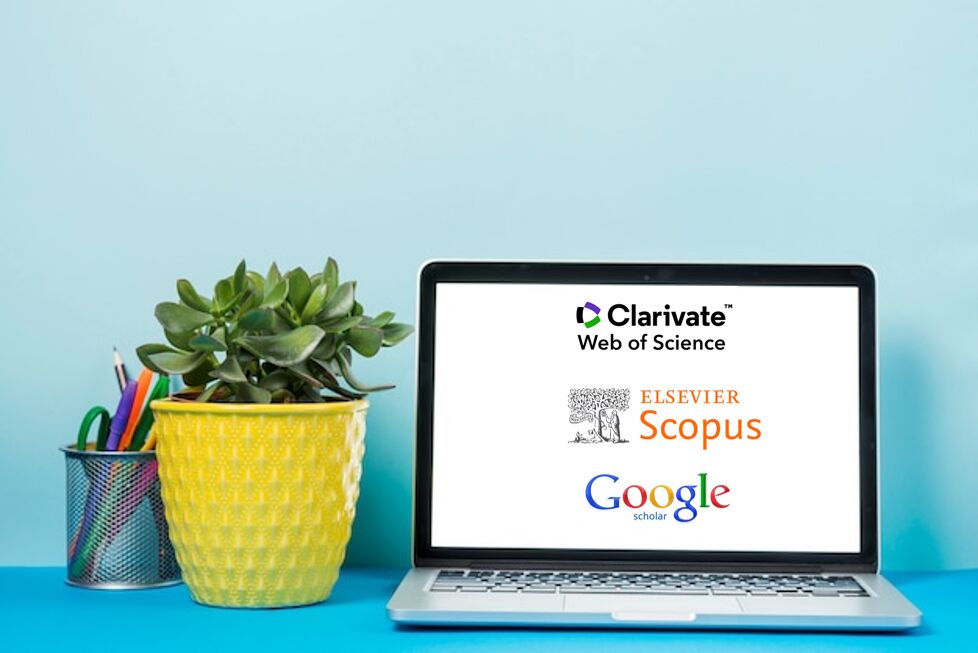مقارنه قواعد بیانات الاستشهادات: الخصائص، نقاط القوه، والقیود


تُعد ISI (المعروفه أیضًا باسم Web of Science) واحده من أکثر قواعد البیانات استشهادًا واحترامًا فی المجتمع الأکادیمی. فهی توفر تغطیه واسعه للمجلات العلمیه عبر تخصصات متعدده، مما یجعلها مصدرًا قیمًا للباحثین.
تتمثل إحدى المزایا البارزه لهذه القاعده فی تحلیل الاستشهادات المفصل الذی یشمل عدد الاستشهادات ومؤشر h-index، مما یمکن الباحثین من تقییم تأثیر الأبحاث العلمیه.
تدعم ISI أیضًا خیارات بحث متقدمه وفلاتر دقیقه، مما یُسهل عملیات البحث الدقیقه والموجهه. ومع ذلک، فإن من قیودها التغطیه المحدوده للمنشورات غیر الإنجلیزیه، مما قد یُصعب الوصول إلى مجموعه متنوعه من المصادر البحثیه. کما أن نظام الاشتراک المدفوع قد یقید إمکانیه الوصول لبعض الباحثین.
تغطیه واسعه للمجلات العلمیه عبر تخصصات مختلفه
تحلیل استشهادات مفصل، یشمل عدد الاستشهادات ومؤشر h-index
خیارات بحث متقدمه وفلاتر دقیقه
تغطیه محدوده للمنشورات غیر الإنجلیزیه
نظام الاشتراک یحد من الإتاحه لبعض الباحثین
قاعده موثوقه ومرموقه فی الأوساط الأکادیمیه
مصدر معتمد لتحلیل الاستشهادات
تُعد Scopus قاعده بیانات شامله توفر تغطیه واسعه للأدبیات العلمیه من مجالات متنوعه. بالإضافه إلى المجلات العلمیه، تشمل أیضًا أوراق المؤتمرات وبراءات الاختراع، مما یجعلها موردًا غنیًا للباحثین الراغبین فی الوصول إلى محتوى أکثر تنوعًا.
تقدم Scopus أدوات قویه لتحلیل الاستشهادات، مثل تتبع الاستشهادات والتحلیل المشترک للاستشهادات، مما یساعد فی فهم التأثیر العلمی للأبحاث. تدعم القاعده أیضًا وظائف بحث متقدمه وتنبیهات للنشر الجدید، مما یعزز سهوله الاستخدام.
ومع ذلک، یجب التنویه إلى أنه قد توجد اختلافات طفیفه فی التغطیه حسب التخصص، ومثل ISI، فإن Scopus تعتمد على نظام اشتراک مدفوع، مما قد یُقید إمکانیه الوصول لبعض المستخدمین.
تغطیه شامله للأدبیات العلمیه من مجالات متنوعه
أدوات تحلیل استشهادات قویه مثل تتبع الاستشهادات والتحلیل المشترک
وظائف بحث متقدمه وتنبیهات للنشر الجدید
اختلافات طفیفه فی التغطیه بین التخصصات
نظام اشتراک مدفوع یحد من إمکانیه الوصول
یشمل أوراق المؤتمرات وبراءات الاختراع
یقدم محتوى متنوعًا وواسعًا للباحثین
یُعرف Google Scholar بتغطیته الواسعه عبر التخصصات واللغات، مما یجعله خیارًا شائعًا بین الباحثین. فهو یوفر مجموعه ضخمه من الأدبیات العلمیه، تشمل المقالات، الرسائل الجامعیه، والمسودات الأولیه.
واحده من أهم المزایا فی Google Scholar هی الإتاحه المجانیه لمعظم المحتوى، مما یزید من سهوله الوصول للباحثین حول العالم. کما یدعم تتبع الاستشهادات ومؤشرات مثل مؤشر h-index، مما یمکّن الباحثین من تقییم تأثیر أعمالهم.
ومع ذلک، من المهم توخی الحذر، إذ قد یتضمن Google Scholar مصادر غیر خاضعه للتحکیم أو أقل موثوقیه، مما قد یؤثر على مصداقیه المعلومات المستخرجه. کما أن خیارات البحث المتقدم والتصفیه محدوده مقارنه بـ ISI وScopus.
مجموعه ضخمه من الأدبیات العلمیه، تشمل المقالات والرسائل والمسودات
تغطیه واسعه عبر التخصصات واللغات
یدعم تتبع الاستشهادات ومؤشرات مثل h-index
یتضمن مصادر غیر خاضعه للتحکیم العلمی أو ذات موثوقیه منخفضه
خیارات البحث والتصفیه محدوده
إتاحه مجانیه وشامله لمعظم المحتوى
قاعده بیانات متعدده التخصصات
کیف تساعدک أکادیمیه سیتا فی اختیار المجله العلمیه المناسبه

أرسل ملخص بحثک |

استلم قائمه المجلات |

اختر مجلتک |

ابدأ عملیه النشر |
إذا کان لدیک أی أسئله، استفسارات، أو ترغب فی معرفه المزید عن خدماتنا، فلا تتردد فی التواصل معنا. فریقنا المخصص مستعد لمساعدتک.